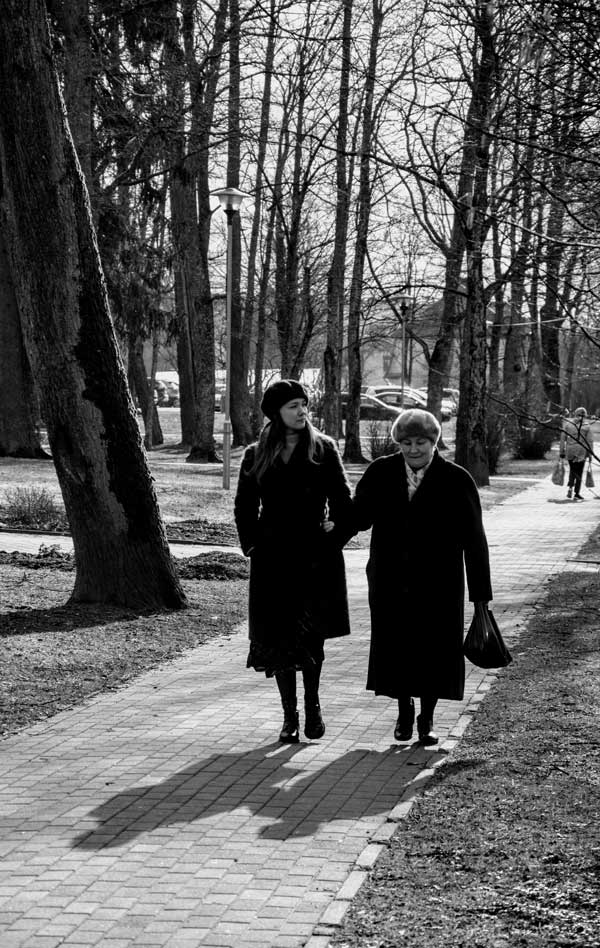There’s No Magic Pill
For Jenn Simpson
It’s a bleak statement, however, I don’t want to lead you on and pretend there is an answer.
For me, this reflection began with COVID-19, and it came to a crescendo with the vaccine.
For over 30 years, as a registered dietitian, I’ve been responsible for large community health projects to increase fruit and vegetable consumption, physical activity and decrease food insecurity and childhood obesity in low-income communities. No small feat, right?
We went out to these communities and helped small markets get refrigeration to store and sell fresh produce, we developed walking clubs, and incentivized the eating of fruits and vegetables. We did what the U.S. Department of Agriculture and research told us to do to improve the health of these residents.
Here’s the deal. If you walked out today on to the street (with your mask on) and asked people how to live a healthy lifestyle , nine out of ten people would say eat healthy and get physical activity. You might hear “get plenty of sleep,” “don’t smoke,” or “drink water.”
If 90% of the population knows this, why don’t people do it?
Two words: mental health
Photo by Kamil Lehmann from Unsplash
If you are in chronic stress about how you’re going to get food on the table (if you have one), then how could you possibly be concerned about eating green leafy vegetables?
If you had/have trauma in your life, particularly childhood trauma (Adverse Childhood Experiences (ACEs)), then do you think your top priority is to get the recommended minutes of physical activity per day?
Prior to COVID-19, our world was suffering. Us versus them. Divisiveness. Hate. Isolation. The widening gap between the haves and have nots.
Prior to COVID-19, the U.S. was embroiled in a number of pandemics including opioid addiction, homelessness, racism, a living wage, and more. You know the one thing all of these issues have in common—mental health or I should say mental illness.
Our response was to turn the other way.
Ignore the stats, the numbers.
We stopped listening.
If I’m not directly affected, then why should I care ?

With COVID-19, we could no longer ignore the cracks in the foundation. We realized we were on shaky ground. COVID-19 made us aware we’d always been on unstable footing.
COVID-19 shone a spotlight , a magnifying glass, on how many people were hurting in our world. The virus, and our reaction to it, made everything worse, including our mental health.
If you felt isolated before, then you felt it a million times more with the advent of COVID.
If you felt depressed, stressed , or anxious , COVID exacerbated all of these.
If you were lonely or didn’t have a support system, you became lonelier.
We turned to drinking, drugs, overeating, anything to silence all of the noise to cope.
Enter the vaccination.
We have a cure.
A magic pill.
Maybe the vaccination was the panacea for the virus, but no pill is going to fix our mental health pandemic.
I know this is a hard pill to swallow. How I wish there was a magic wand we could wave to make this shit go away.

Yet, there is a solution— empathy .
“Well, Michelle, that’s easy enough,” you say. “I can do that.”
Here’s the caveat: empathy is harder than it appears.
Empathy is defined as the ability to sense other people’s emotions, coupled with the ability to imagine what someone else might be thinking or feeling.
Empathy is the cure. It just won’t happen overnight.
What do we* need to create more empathy in our world? Here are six habits to foster empathy (Note: there isn’t a checklist or a finish line for creating empathy. You do you, boo. Any move toward empathy is a win.):
Habit #1 Talk to new people. Get curious. Ask the cashier at the grocery store about her Texas pendant. See the elderly man sitting alone at a party, and inquire about his dashing fedora. Start a conversation with a co-worker you have nothing in common with. Highly empathetic people are insatiably interested in strangers. Empaths will talk to anyone. They have retained the natural inquisitiveness of a child, or have overcome the shame society instilled in us for being curious. This curiosity expands our empathy when we talk to people outside our usual social circle. We encounter lives, stories, and worldviews different from our own.
Habit #2 Listen hard. Listen to hear and understand, and not to respond. Listen with your heart. Silence your mind.
Habit #3 Be vulnerable. Listening is important, yet to have deep and rich conversations you have to be vulnerable. Empathetic people listen to grasp the other person’s emotional state and needs. Responding to these emotional states and needs, requires our own vulnerability. We have to be courageous enough to take off our masks to reveal our feelings to the other person. This makes for a strong empathetic bond.

Habit #4 Challenge yourself. See the perspective of those you have less sympathy for or connection with—perhaps even your “enemies.” It is easier for us to feel empathy for those we are connected to, those we have things in common. The true “test” is to feel empathy for those we think we have nothing in common with.
Habit #5 Challenge prejudices and discover commonalities. Our society, we, are filled with biases against those we don’t understand (or listen to). Here is a short list: “black angry man,” “welfare mom,” “Muslim fundamentalist,” “lazy homeless person,” etc. Highly empathetic people test their own prejudices by listening to other people’s stories and search to find commonalities.
Habit #6 Take action and offer help to inspire mass action and social change. Congratulations, you’ve transformed your own personal prejudices and discovered commonalities by listening and being vulnerable, by being courageous and challenging yourself. Now it’s time to change the world . The only way to do this is by coming together. We need to harness our social networking and power to create a more diverse and just world.
Please join Representation Rebellion to discover and support ways we together can lift all voices and tell all stories. Thank you!
*Note: I use we here because while an individual has to become empathetic before transforming anyone else, it will take all of us to create a world filled with empathy. In doing this together, we can change the world.
https://www.sciencedaily.com/releases/2020/11/201116112918.htm
https://www.nytimes.com/guides/year-of-living-better/how-to-be-more-empathetic
https://greatergood.berkeley.edu/article/item/six_habits_of_highly_empathic_people1

Hooray! An honest discussion about the pandemic and the difficulty to find balance amongst the chaos. Literature and personal experiences support the “do something kind for another human, and your heart will feel bigger”. Dr. Z explains the depth of mental illness during the global pandemic. She further guides us with practical steps to lift up our face and know we are not alone. Thanks Dr. Z!! #kindness #COVID19
Robin, we really appreciate your thoughtful comments. Thank you for taking the time to read the article and your continued support. Our hope is that more people will read these articles to bring awareness to these topics which are often not spoken about in this way. ONWARD!
Empathy as a cure for mental illness challenged my thinking. I read and re-read this post, and really thought about empathy- what it is and why it is important. Empathy is about engaging with others as people of equal value. Empathy requires that we approach people out of curiosity, not judgement; that we identify people by name, not a label. It is impossible to be empathetic and indifferent. Empathy may not be the cure for mental illness, but without it there can be no remedy.
Dear Marguerite,
We need more empathy warriors, like you, out there in the world. I love this quote, “It is impossible to be empathetic and indifferent.” And this one, “Empathy may not be the cure for mental illness, but without it there can be no remedy.” Brilliant. Thank you for sharing and doing the work you do. ONWARD!